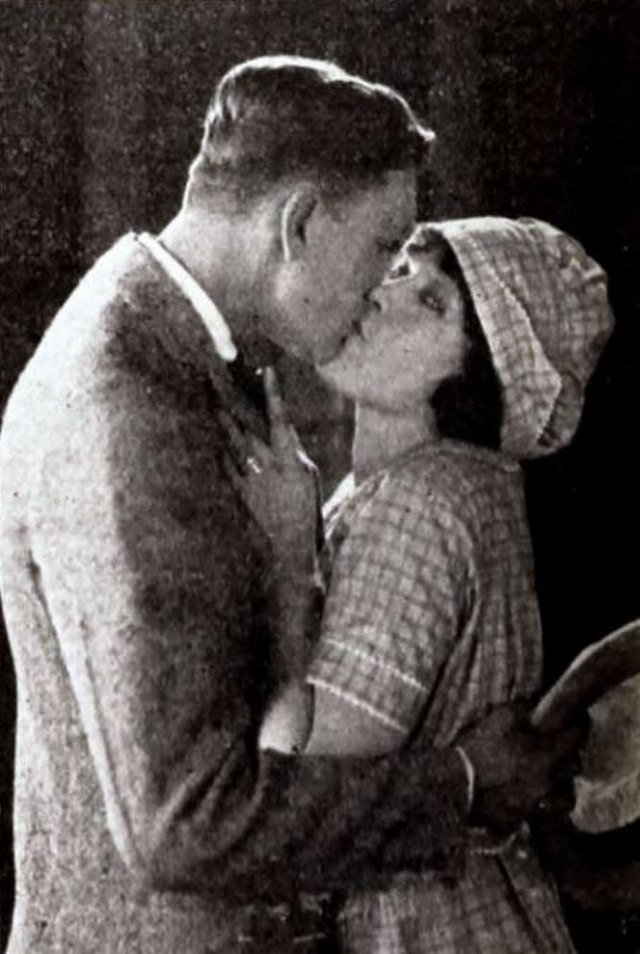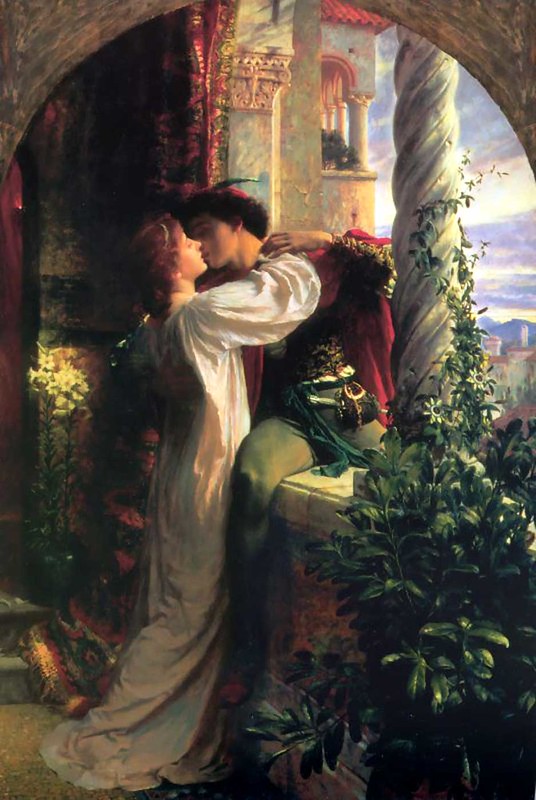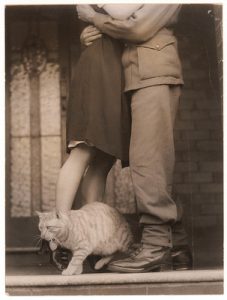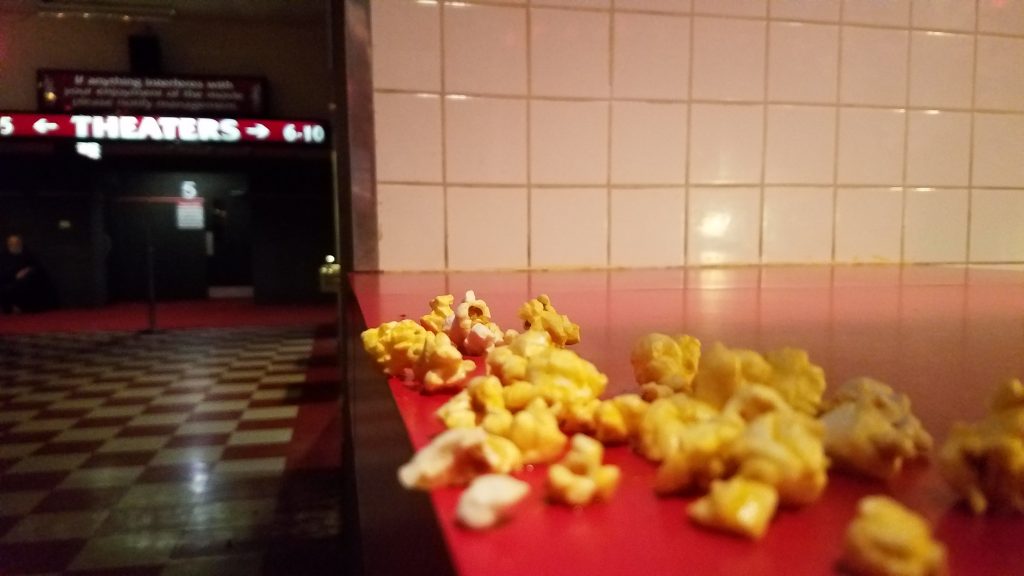Most people don’t closely analyze what type of media they consume. Sure, they’ll look over the summary of a movie or maybe even glance through reviews, but they won’t try to understand how it could impact future choices they make. If you were to explain to them that bingeing romance movies heavily increases their chances of developing certain ideas about what a romantic relationship should be, as well as influencing the type of romantic partner they will want in the future, would they reconsider what they watch?
Younger audiences tend to be influenced by romance portrayed in movies, as most of them haven’t had the time to actually form enough genuine relationships. They tend to idealize certain relationships and use romance that’s portrayed in films and in television shows as a sort of guide for how they should live their lives or what choices they should make.

This type of mirroring behavior is common regardless of the genre of the film, as there has been research conducted about the effects of film on adolescents. “Children’s lifetime superhero exposure may influence children’s risk-taking. Given American children’s substantial media exposure, research should continue to unpack the role of superhero media on children’s unintentional injury and other health risk behaviors.”1
To give an example of this, we have eighteen-year-old Elle Williams who has just started attending college away from her hometown, meaning she doesn’t have her friends around her to make her feel comfortable when she’s attending school, and she has no relatives living near her. She feels alone. All she wants is someone around her who cares. It’s hard living in a cramped dorm with no one to really speak to. All she does is watch movie after movie, barely making any friends as she’s holed up in her room, but can you really blame her? Almost everyone she’s tried to interact with is doing the same thing. Most people just don’t look too excited to have a conversation with a complete stranger. It’s not like Elle was completely friendless; she had a total of two friends that were not from her hometown. While she’s happy to even have any friends in college, she would be lying if she said she wasn’t upset when they couldn’t hang out more often with her. Her friends both had significant others, which meant that they would hang out with them rather than with Elle. While she was obviously happy for her friends, she couldn’t help feeling a tad envious. Elle had never had a serious relationship before. She had small crushes on people every other week, which would usually fade in a few days. Being the single friend really bummed her out; what was it about her that was unappealing? Why couldn’t she be swept off her feet by an attractive person and go on cute dates just like every other person was experiencing?

That was just how her life went. At least, that’s how it went until she met Daniel. Now Daniel was Elle’s dream guy. He was slightly taller than her, usually had a pair of wired earbuds stuck in his ears regardless of whether class was in session or not, and he wore oversized sweaters. Now, this might not seem like the most attractive person in the world, but to Elle, he was. Elle was experiencing the eros style of love, which is one of the six styles of love. She placed him at an “ideal” image of physical beauty, where she’s immediately drawn into him to the point where she disregards any immediate red flags in his behavior. But, to be fair, this is something that is normalized in romantic films, as it’s not revealed until the climax of the movie what someone’s true intentions are, or at least by then the rose-colored glasses come off the main character’s eyes.2
For example, in the movie Clueless, the main character Cher has fallen for a transfer student Christian, who’s unlike any of the boys in her class. She does so much to pursue him, due to her attraction to him, but she doesn’t even see that Christian is just not into her, or any girl for the matter.3
Now the film Romeo & Juliet showcases another big trope, that of love at first sight. One of the main characters, Romeo, goes to a costume party, where he lays eyes on the beautiful Juliet and immediately falls in love with her. This is highly unrealistic; no one actually falls in love with someone that fast; rather, they’re obsessed with the idea of someone.4
The normalization of first love at sight in movies is a very problematical trope, as it’s essentially creating a fantasy of someone you don’t know. This unknowingly influences audiences to create stories about who someone is, rather than actually paying attention to red flags in their behavior. This would ultimately lead to disappointment, as no one can live up to the fantasy that someone has created about him or her. “As the intensity of the longing and the passion felt and why eros disappoints many and drives some to abject despair. But not only is this desired state fleeting at best and unrealistic on the whole, the quest for it also is often self-defeating.”2
From the time they met, Elle and Daniel hung out consecutively for at least four months, where they went on dates and just had fun with each other. Honestly, Elle had been living in this state of euphoria, where everything feels great and nothing could ruin her mood; that is, until one of her friend’s asked if Elle and Daniel were exclusive now. What did that even mean? They hung out with each other almost every other day. Of course they were exclusive; they just hadn’t given it a defining label yet. She had seen enough romance movies to know that everything was fine, and nothing major had happened. She tried to convince herself that their lack of communication wasn’t anything that seriously bothered her; but it really did. “It may be that because the romantic comedy genre attracts a large female audience (Fischoff, Antonio, & Lewis, 1997), filmmakers are intentionally featuring the types of relationships that women want most—those in which both partners discuss the relationship.”6

Elle was now experiencing manic love, where she spends all of her free time obsessing over Daniel, and spends countless hours dwelling on all the things that could go wrong, creating more anxiety for her. She realized that she wanted that label “exclusive.” She needed that sense of security. Now, Elle was hoping for a happy ending with Daniel. However, that’s not how it went. She brought up her concerns to him one day, and he told her he never had any intention to be serious or exclusive with her. That broke her heart, and it seriously messed with her perception of romance for a while. But she had to get over it, at least after a few months of crying and watching more romance movies. People could say that watching so many of these movies is what got her here in the first place, and that statement holds some truth to it. Continuing to watch these films, rather than using other resources to help her redefine her concept of a realistic relationship, just perpetuates the challenge of entering into a meaningful relationship with a significant other.
Being able to recognize that movies can influence her choices in romantic relationships is a good thing. This will allow Elle to have a better view of what she values in a partner, and what’s important to her, rather than simply putting up with ambiguity. And now she’s cautious when she views her romantic partners. She no longer idealizes them, and puts them on a pedestal; rather, she is able to hold them accountable for their actions. Galician (2004), an author of a critical analysis of romantic media, argues that people seek romantic content in the media in order to see relationships that appear to work despite all obstacles. Further, previous work has documented that young people seek out romantic media content in order to learn about relationships.6
It’s important for everyone, especially younger audiences, to realize that the types of films they watch do impact decisions they make and how they may perceive themselves. By acknowledging that movies have this type of influence over the way that people think, it’ll become easier to distinguish fantasy from reality, and possibly save someone from another heartbreak, or help them take that leap of faith when meeting someone new.
- Casie H Morgan, Barbara A Morrongiello, and David C Schwebel, “Short- and Long-Term Effects of Superhero Media on Young Children’s Risk-Taking Behaviors,” Journal of Pediatric Psychology 46, no. 7 (August 2021): 779–89, https://doi.org/10.1093/jpepsy/jsaa133. ↵
- Francis Duffy, “Attraction and Love,” Salem Press Encyclopedia, 2021. ↵
- Amy Heckerling, Clueless, 1995, Paramount Pictures. ↵
- Baz Luhrmann, 1996, Romeo & Juliet, United States: Twentieth Century Fox. ↵
- Francis Duffy, “Attraction and Love,” Salem Press Encyclopedia, 2021. ↵
- Veronica Hefner and Barbara J. Wilson, “From Love at First Sight to Soul Mate: The Influence of Romantic Ideals in Popular Films on Young People’s Beliefs about Relationships,” Communication Monographs 80, no. 2 (June 2013): 150–75, https://doi.org/10.1080/03637751.2013.776697. ↵
- Veronica Hefner and Barbara J. Wilson, “From Love at First Sight to Soul Mate: The Influence of Romantic Ideals in Popular Films on Young People’s Beliefs about Relationships,” Communication Monographs 80, no. 2 (June 2013): 150–75, https://doi.org/10.1080/03637751.2013.776697. ↵



78 comments
Daniel Diaz
Honestly, I feel like romance in Hollywood died after the twilight movie saga. The truth is today people are more worried about keeping up with trends and starting new fads. The wave of “50 shades” took over Hollywood and people have somehow passed off emotion for immediate pleasure. The side affect of that is that less younger people are having married and women are waiting until their 40’s to have children. Movies like Disney have ruined it for a lot of people because it creates a fake notion that every person can have everything they want in life at the same time which is almost impossible. Good article.
Elise
This was a very awesome article
Vivian Urrutia
You wrote such an impacting article Destiny! I have had many conversations with my friends about this and how especially Disney transmits to us an image of perfect love and a perfect story. Disney and Hollywood have changed younger people’s perception of love in a large number of ways. In Disney and Hollywood, everything is perfect and beautiful when that is not the reality we. have problems in real life and it doesn’t necessarily end in a happy marriage. Great article!
Sophia Kussel
this article was rather insightful. The analysis of common romantic tropes in film and how they have now been injected into the public understanding of romance is fantastic. I think this article could be the perfect wake up call for those taken hostage by the corporate idea of the “perfect romance”.
Christian Guerrero
Who doesn’t love a little Romance? Although their are great movies out there such as the “Notebook”, “Bodyguard” and “Titanic”, these on screen love affairs are portrayed as something that someone could achieve. In this day and age it is all about dating apps and direct messaging people in order to meet up and see if you have a connection. Young adults are so busy these days that trying to fester a relationship that is movie worthy is so overrated. Movies and media do influence the youth and not always in a positive manner.
Makenzie Bell
Not only did this article use very well known films, but it also touched on aspects that fully disclose the idea of the film industry being able to persuade audiences how to fall in love. I really enjoyed how the films were broke down, and shown how they fall into this category. Not only did I enjoy reading this article, but I now want to go re watch every movie mentioned to realize this perception.
Elliot Avigael
I really enjoyed this article. Certainly, Hollywood and Disney have painted an extremely unrealistic picture of love and romance; I think many of us would like to think, rightfully so, that love is just like it is in the movies.
In reality, love is complicated. It is journey that can be unforgiving, full of unexpected twists and turns, and sometimes disappointing. It is inherently a good emotion, but it’s important to separate fantasy from reality.
Morgan Kuchta
This was such a fascinating topic! I’m a big fan of the romance genre, but I never gave much thought to the problematic nature of even the “positive” tropes, such as love at first sight. Like other commenters, I also really appreciated your connections to younger audiences. I can definitely see myself becoming more aware of the impacts of even subtle messaging within films.
Aaron Fanning
With taking on this topic makes the article engaging to read. We watch movies but I would like to say that majority of people don’t think about how it can affect on others, that have an idea of what a romantic relationship is to them even if they have been in one or not. From this article people should take in consideration on how a romantic movie can influence younger audiences.
Leopoldo Martinez-Milland
As someone who considers themselves an appreciator of film, I was able to appreciate Destiny’s article. For me personally, one of my favorite film trilogy is Richard Linklater’s Before Trilogy (Before Sunrise, Before Sunset, and Before Midnight). That trilogy of movies stars Ethan Hawke and Julie Delpy as a group of college kids who meet in Europe and fall in love and at the aftermath of their original meeting. Destiny’s article helped me realize that the chemistry of Hawke and Delpy’s character is something I want to find in my own relationship and has definitely led to me overthink when it comes to pursuing someone. Either way, this was a great article that has definitely led me to do some research of my own.